
October 2025 marks the 75th anniversary of the publication of the famous Turing test, a landmark moment in the birth of Artificial Intelligence. As strange as the title sounds, we are not joking or playing with words - this week's TypeRight, we go to Albania, where Diella (which is Albanian for sunshine) has been appointed the minister for public procurement, in an effort to tackle long-standing corruption. The catch? Diella is not a person, but AI.
AI means Artificial Intelligence. AI can also be “Albanian Intelligence”. Since Albania as a country, and its government announce that they are smarter than others to declare that they will use AI Minister for some administration and governance. To be precise, “Diella” is the new name of the minister for public procurement in Albania, and Diella is not a human but an Artificial Intelligence agent.
"Good morning and Happy Sunday, your Zadrimo assistant who has just emerged from the AKSHI Artificial Intelligence incubator and for several months will be ready not only to assist you during your interaction with the e-Albania platform but also to perform services for you with a single prayer, I wish you the most peaceful Sunday possible,"
(Source: CNN A2)
Diella used to be a virtual assistant wearing a traditional Albanian costume, assisting you with voice messages for any requested electronic service in the government's e-governance initiative.

A Brief Background
Albania was the last Balkan nation to break away from the Ottoman Empire, becoming independent in the early 20th century. The Communist Party of Albania was founded in 1941 with support from Yugoslav communists, not from a pre-existing socialist movement or large working class within the country. Its primary objective was to fight against the Fascist and Nazi occupations. Following World War II, Albania was under the long-term communist rule of Enver Hoxha. This period was marked by isolationism, suspicion of technology, and Western influences and advancements seen in other parts of the world were not adopted. The post-war period brought significant modernization in areas like education, healthcare, and housing, which were direct results of the partisan victory.
Albania was also the last of the Eastern European nations to transition after the fall of the Soviet Union. In 1992, the country went through a very difficult and fast change to a market economy. This change caused many problems. Factories shut down, leading to widespread job losses. At the same time, the gap between the rich and the poor grew, as a few powerful people took control of government businesses. These new elites often sold off these businesses for a quick profit instead of making them productive. In this time of high unemployment and poverty, massive pyramid schemes appeared. These were huge investment scams where early investors were paid with money from new investors. People, desperate for a way to get rich quickly, put their life savings into these schemes. When the pyramid schemes eventually failed, the country plunged into chaos. People took to the streets in a violent rebellion, stealing weapons from military bases. This period of anarchy led to the deaths of about 1,500 people. After the chaos, a new government came to power, but it more or less continued the same economic policies that had caused the crisis in the first place - the same government that now sits in parliament.
Corruption allegations since the neoliberal reforms of the 90s have continued into the present - protests have continued, fueled by public criticism against the current prime minister and his party's alleged ties to business magnates, a lack of transparency, and the questionable use of public funds.
AI for Social Good/ AI Against Corruption
This corruption is where AI comes in.
Rama stated that decisions on tenders would be taken “out of the ministries” and placed in the hands of Diella, who is “the servant of public procurement.” He said the process will be “step-by-step,” but Albania will be a country where public tenders are “100 percent incorruptible and where every public fund that goes through the tender procedure is 100 percent legible.”
This is not the first time tech or AI has been employed to speed up processes that seem neutral and make things fair. As early as the 1970s in Chile, the Allende government attempted a bold modernist project to use cybernetics and early computer technology to run the country. Following a period of nationalisation of industries, they built a network of telex machines that linked these industries' real-time data to a central mainframe computer. This computer looked at production data and marked any problems it found. The data was presented to a futuristic operations room where government officials could quickly and democratically make decisions.
The USSR around the same time also had a similar project - It was envisioned as a way to overcome the bureaucratic inertia and information bottlenecks that plagued central planning. While a few local systems were implemented, the project was ultimately denied full funding in 1970 due to bureaucratic infighting and political resistance from officials who feared losing control to a computerized system.
or the US, where Cities like Los Angeles and New York worked with aerospace corporations and think tanks (such as RAND) to use computational models to predict and manage urban problems like crime and blight - however they often failed to account for the "messy human world of competing political interests."
While technically the foundational principles of an AI based governance system differs from the projects mentioned above, they fundamentally use data and technology for social control in some forms - AI systems dont nudge a system in a human-like way but analyze vast historical datasets to forecast future events or behaviors. This is seen in cases like predictive policing, and earlier TypeRights (and DEF's project on Data Justice) had covered some such attempts.
Beyond the critiques of a tehno-state, it can also be argued as a rather superficial and legally dubious public relations stunt. presenting technology as a quick fix, one that is mostly black-boxed and hard to make accountable is also just a scapegoat to shift blame to.
Either way, the news is rather interesting to follow, and see what might become of an AI Minister!
In Other News we are reading
and other DEF updates -
Registrations for DCS 2025 are 𝗢𝗣𝗘𝗡, at 𝗧-𝗛𝘂𝗯, 𝗛𝘆𝗱𝗲𝗿𝗮𝗯𝗮𝗱 on 14–15 Nov 2025:
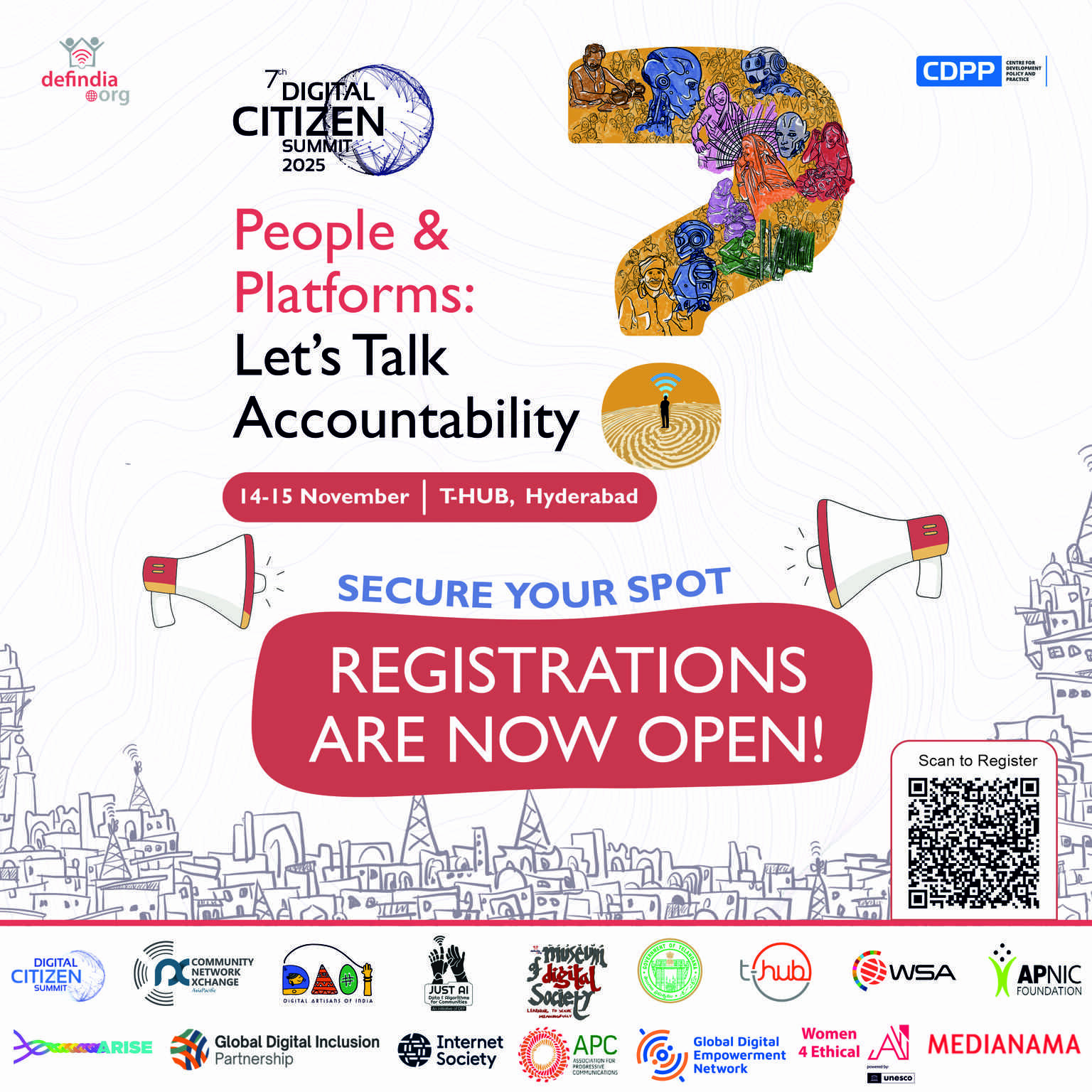
Follow us on Instagram to access our Transform The Platform Talk Series
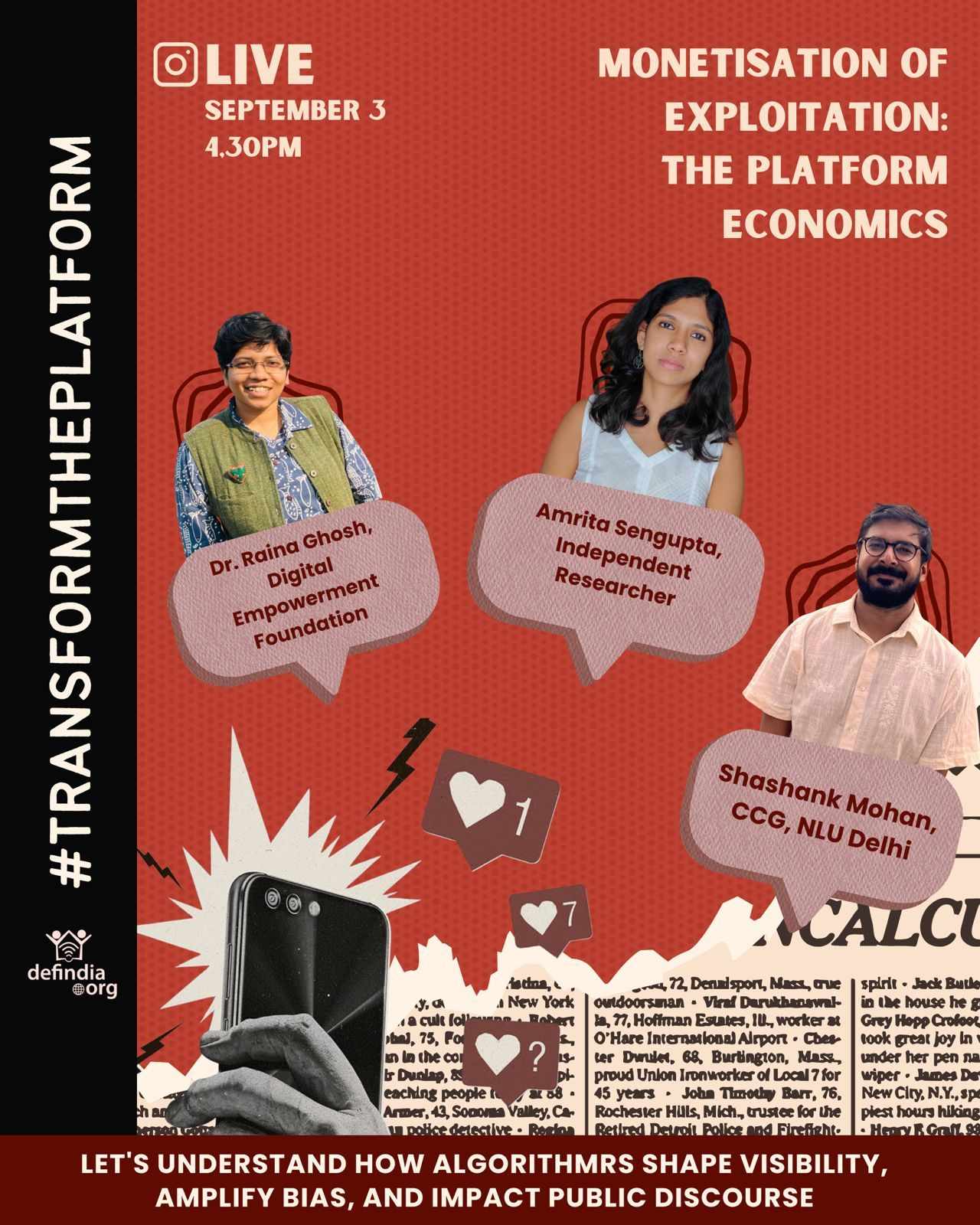
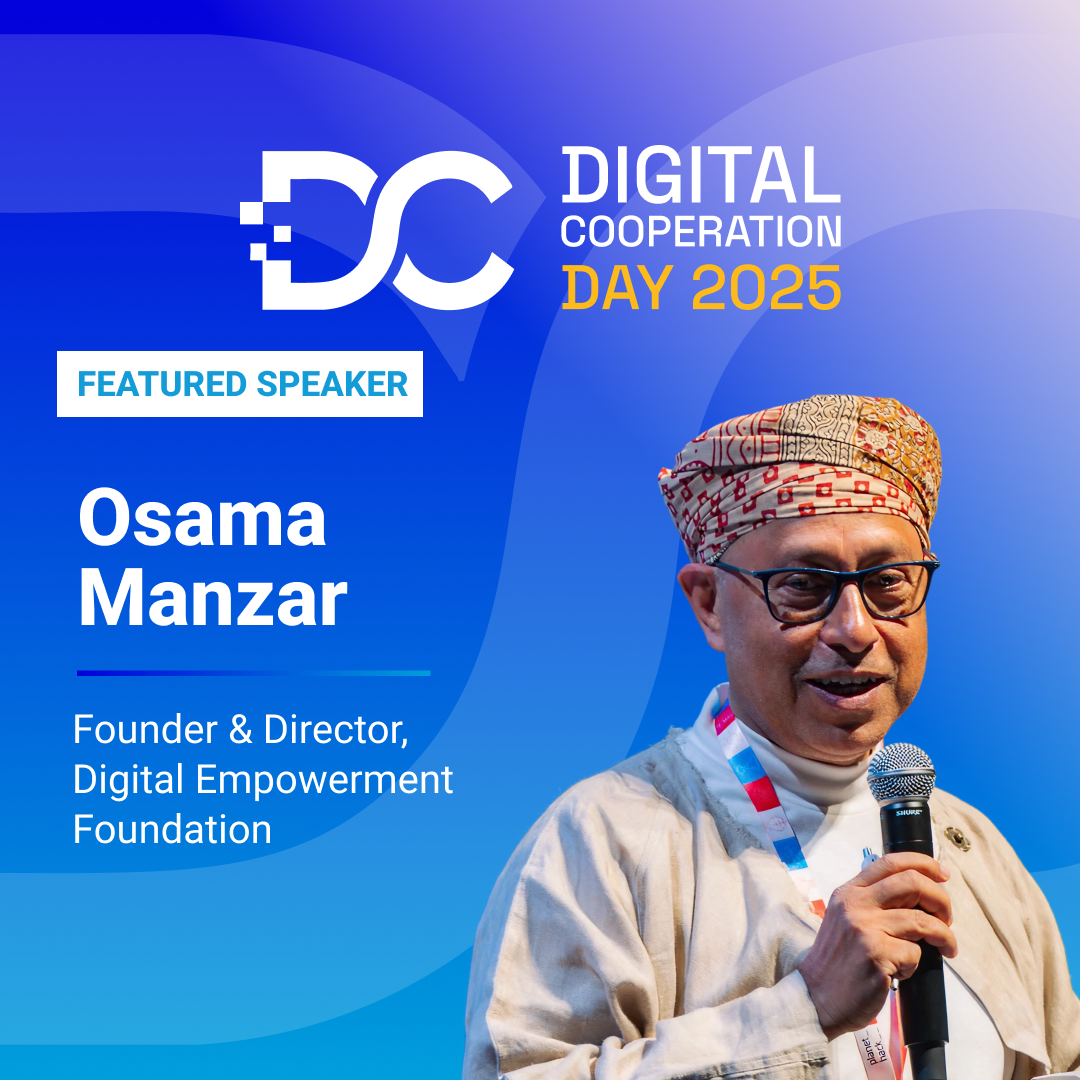
Osama Manzar will be speaking in several sessions at Digital Cooperation Day on the occasion of UN General Assembly in New York

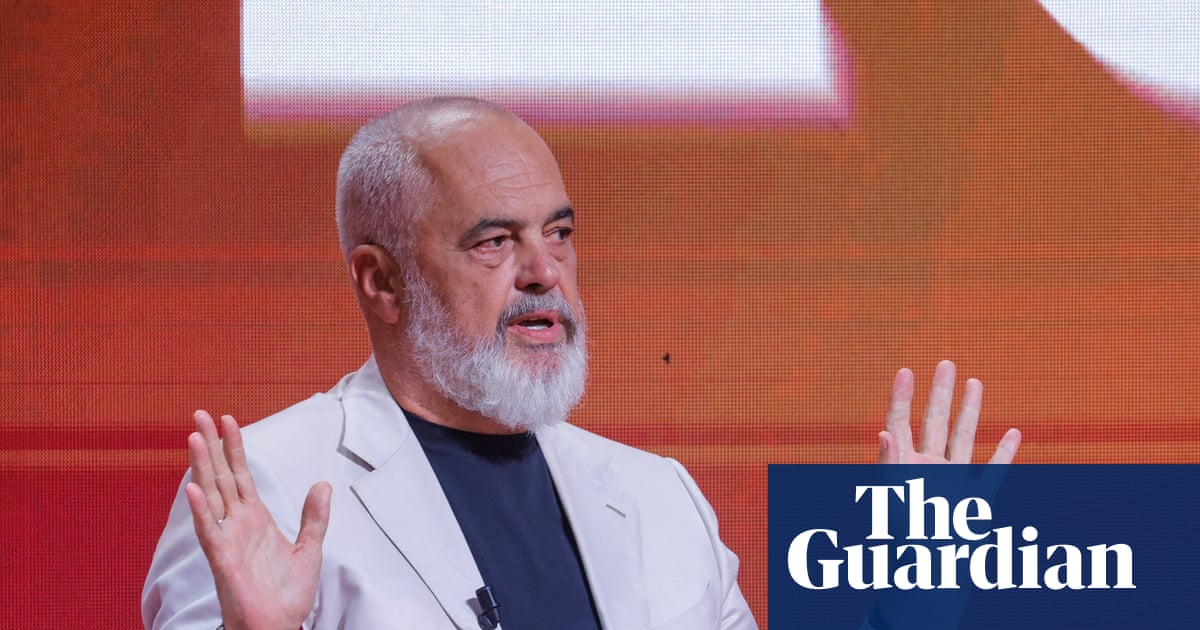


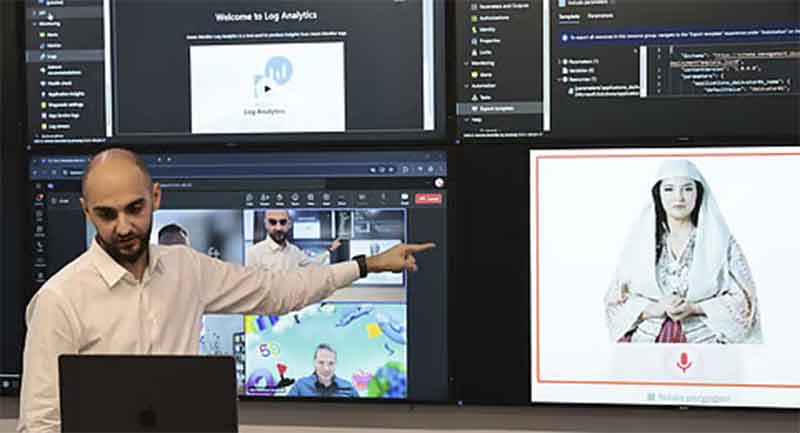

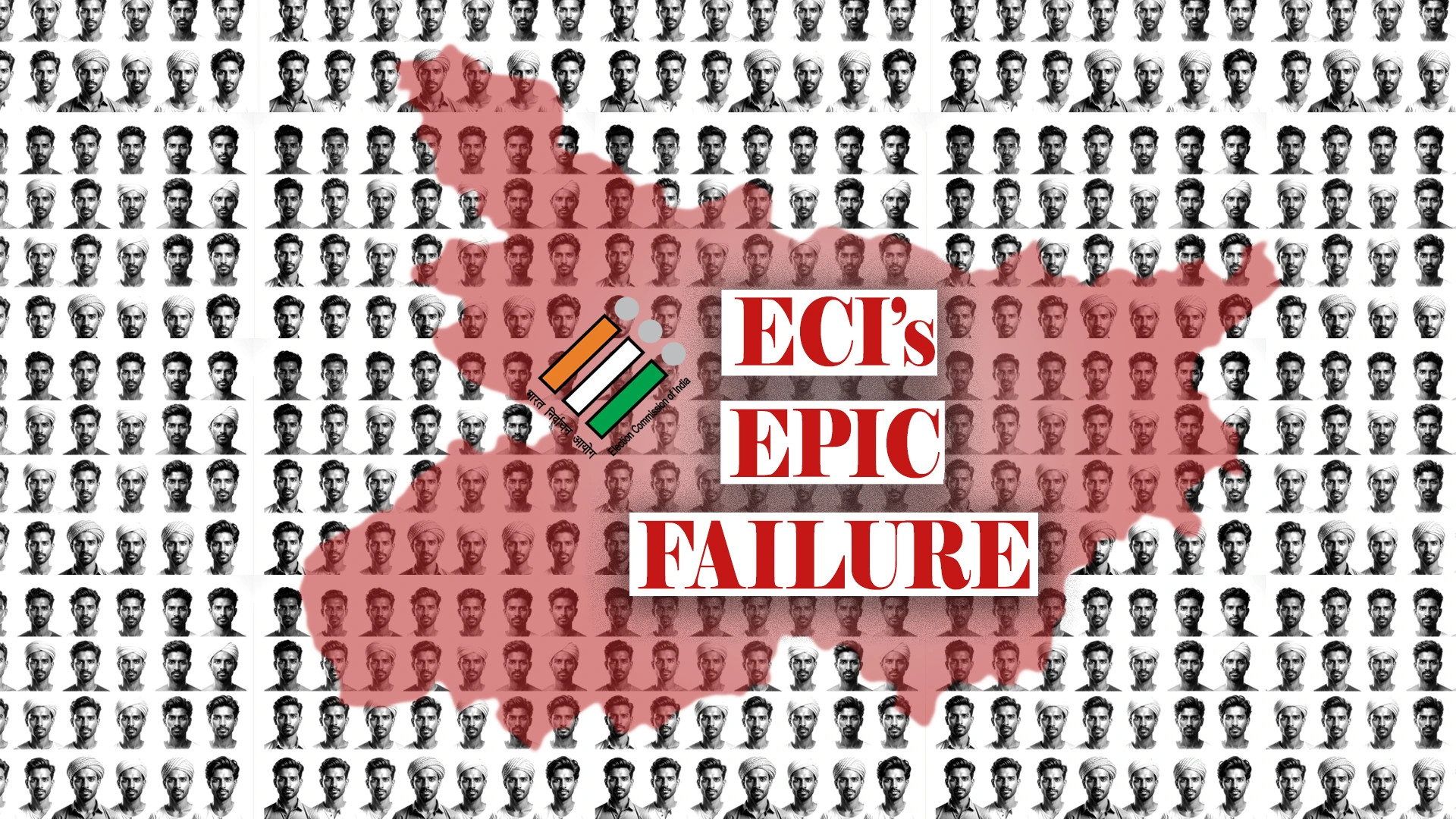




















 might be?](https://sk0.blr1.cdn.digitaloceanspaces.com/sites/1394/posts/714526/dbc8de4c-5c50-411f-aba0-55cfb74a692d.jpeg)

Write a comment ...